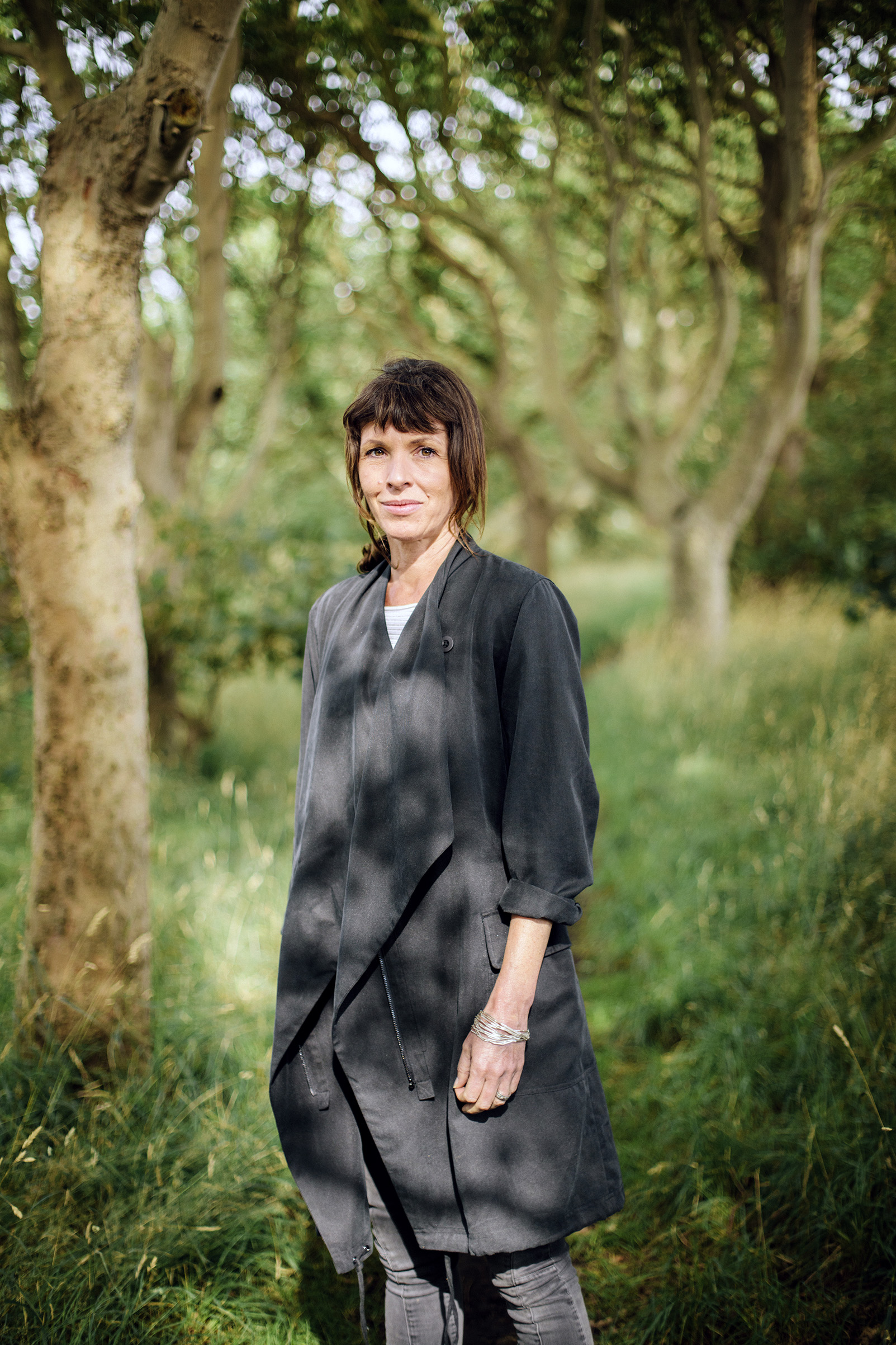
Rachel Cusk is not a radical–at least not anymore. Critics lambasted her as a “bad mom” when she asserted that marriage and motherhood deprive women of any sense of self in her memoirs A Life’s Work (2002) and Aftermath (2012). Years later, she’s still writing about the anguish of divorce and parenting, but those ideas have been better received as a trilogy of acclaimed novels: Outline (2015), Transit (2017) and, now, Kudos (June).
“It took me a while to figure out why the memoir was malfunctioning,” Cusk says. “I realized if you use yourself as an example, people turn you into the exception.” She believes women will go to great lengths to disguise their own ambivalence about motherhood, and that by exposing their suffering with her own story she gave readers someone to admonish. “That made me angry. Their response sent the message to any woman struggling with motherhood that she would be attacked.”
So she turned to writing fiction that draws directly from her own life. The series centers on Faye, a divorced author living with two children in Britain–just like Cusk. The novels don’t really have a plot. Faye travels to Greece in Outline, gut-renovates her home in Transit and attends a German literary festival in Kudos. Cusk has made Faye a silent cipher. She says little as friends and strangers monologize about their failed marriages.
Delving into one of Cusk’s novels has the voyeuristic appeal of eavesdropping on a stranger’s therapy session. The literary world has embraced the style, a mashup of fiction and autobiography, as a brilliant innovation. “I was eager to find a new form that was less confrontational,” says Cusk. “There’s not that much difference for me as a writer. It’s just adjusting the frame.”
In Kudos, the trilogy’s final installment, Faye (like Cusk) has remarried, although she shares no details about her new partner. When a friend asks Faye why she chose to resubmit herself to the repressive laws of marriage, Faye replies, “I hoped to get the better of those laws by living within them.”
Cusk has never been one to work within the system. But in Kudos, she asserts that freedom–from marriage, from obligation, from the patriarchy–has its drawbacks. A man tells Faye that for decades he tallied his income on a spreadsheet labeled freedom in anticipation of early retirement. But when he finally quit his job, he found domestic life unsatisfying. Another character remarks that people who leave their toxic families become lonely. “You pursue ‘freedom’ or ‘love’ or some principle, but they’re like mountains in the distance that never seem to get any closer,” says Cusk. “You realize at a certain age that refrigerator magnet idea: ‘It’s the journey, not the destination.'”
The costs of freedom also take on a political import: the U.K.’s divorce from the European Union haunts the novel, set shortly before the Brexit vote. Faye’s seatmate on a plane interprets signs lobbying voters to “leave” or “remain” as a personal comment on his own marriage. “The private consciousness was enacted on the public stage,” says Cusk of Brexit, “including the trauma.” Cusk hints that society should rebuild its structures rather than seek liberation from them. That process may begin with righteous anger, as when Faye’s friends share stories about abusive exes and question gender roles. “With #MeToo, we’re witnessing an unraveling of an old morality,” Cusk says. “Now what replaces it?”
Faye and her friends are still trapped in archetypes: the angry feminist who fights against marriage, or the martyr who sacrifices herself to the institution. But Cusk wonders in Kudos whether they–like Medea, Antigone and other women of Greek tragedy–can achieve honor through that suffering. Cusk remains hopeful that being honest about pain can lead to salvation. “I have found freedom is in fact truth,” she says–although she is still determining how to communicate that truth. She’s done with the style of Kudos. “I’m always on the move artistically,” she says, “to find what the language of our world will be.”
More Must-Reads from TIME
- Cybersecurity Experts Are Sounding the Alarm on DOGE
- Meet the 2025 Women of the Year
- The Harsh Truth About Disability Inclusion
- Why Do More Young Adults Have Cancer?
- Colman Domingo Leads With Radical Love
- How to Get Better at Doing Things Alone
- Michelle Zauner Stares Down the Darkness
Write to Eliana Dockterman at eliana.dockterman@time.com